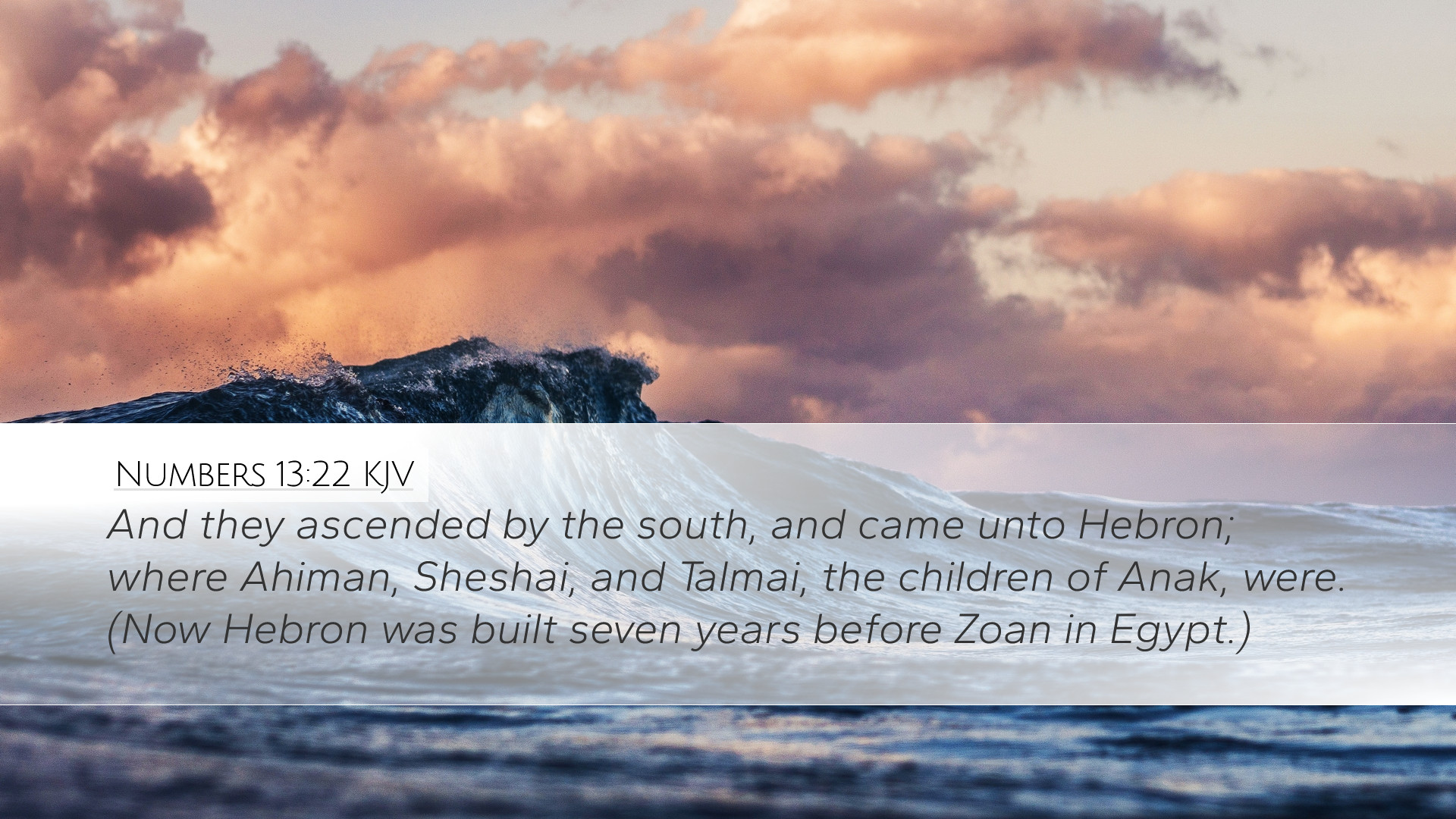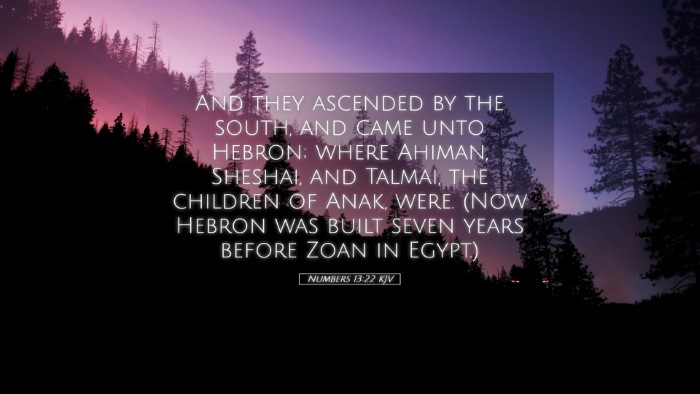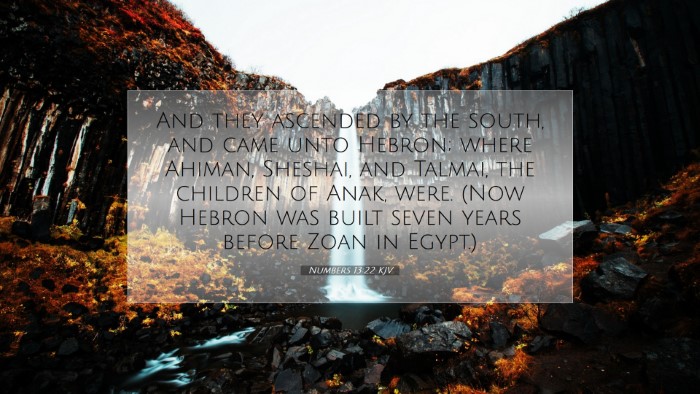Commentary on Numbers 13:22
Verse: "And they ascended by the south, and came unto Hebron; where Ahiman, Sheshai, and Talmai, the children of Anak, were." (Numbers 13:22)
Contextual Background
The passage in Numbers 13 narrates the account of the Israelite spies who were sent into Canaan to explore the land that God had promised to them. This particular verse highlights their journey into Hebron, a significant location historically and spiritually for the Israelites.
Insights from Public Domain Commentaries
Matthew Henry's Commentary
Matthew Henry emphasizes that the name Hebron means "association" or "confederation" and is noted for its importance as a city of refuge and a burial site for the patriarchs, including Abraham and Sarah. He points out that reaching Hebron represented both a tangible promise being fulfilled and a challenge due to the presence of the formidable Anakim. Henry highlights the tension between the assurance of God’s promise and the reality of the giants that dwelled in the land.
Albert Barnes' Notes on the Bible
Albert Barnes elaborates on the geographical significance of Hebron, indicating its strategic position in the southern part of Canaan. He mentions Ahiman, Sheshai, and Talmai, noting that they belonged to the Anakim, a race renowned for their great stature and strength. Barnes suggests that their presence there caused fear among the spies, as these giants were a potent sign of the opposition that Israel would face in taking possession of the land. He discusses the difference in perspective between the spies who saw only the giants and those who trusted in God’s power to overcome them.
Adam Clarke's Commentary
Adam Clarke provides cultural context regarding the inhabitants of Hebron, referencing both their physical stature and the historical significance of the land. He explains that the Anakim were viewed with dread by the Israelites, and their stronghold of Hebron represented a significant layer of difficulty in the conquest of Canaan. Clarke focuses on the fear that overtook the spies and emphasizes the importance of faith in God’s promises amidst visible challenges. He illustrates how the characteristics of the land and its inhabitants required unwavering reliance on divine strength.
Theological Implications
This verse serves as a profound reminder of the dual nature of faith—recognizing both the enormity of the challenges before us and the faithfulness of God’s promises. When the spies saw strong adversaries, it prompted a crisis of faith which is a theme echoed throughout Scripture. The essence of this verse challenges believers today to consider how they respond to the giants in their lives.
Practical Applications
- Faith vs. Fear: The interaction between faith and fear is paramount. Just as the spies had to choose to believe in God’s promise or be paralyzed by fear, today’s believers face similar crossroads.
- Understanding Our Heritage: Hebron serves as a reminder of our spiritual heritage and the places of impact in our faith journey—moments when God has proven Himself faithful.
- Confronting Challenges: The presence of giants—metaphorical or literal—should not deter the faithful, for God remains sovereign over all adversities.
- Collective Mission: The narrative encourages a collective focus on the mission God has given us, fostering unity and collaborative effort in the face of challenges.
Conclusion
Numbers 13:22 is a succinct but pivotal verse that encapsulates the broader narrative of faith against obstacles. Through the lens of the commentaries by Matthew Henry, Albert Barnes, and Adam Clarke, we see the historical, geographical, and spiritual ramifications of the Israelites’ journey into Hebron. It serves as both a warning and an encouragement for Christians as they navigate their own journeys of faith, urging them to look beyond the giants in their midst and trust in the promises of God that lead to flourishing lands.


